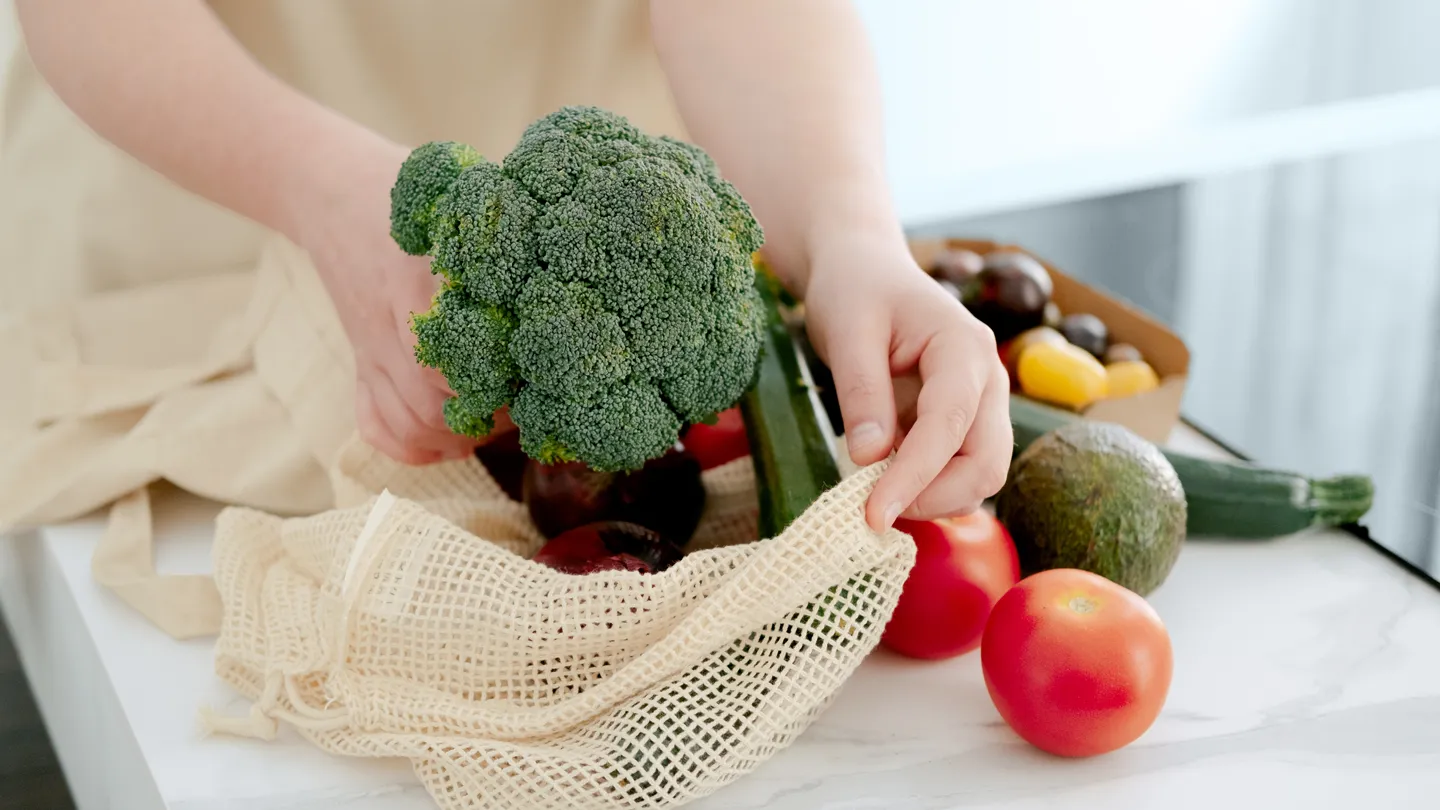When choosing your meals and snacks, put the most emphasis on plant foods and lean protein, says Zumpano.
1. Whole Fruits and Vegetables
Try these nutrient-dense fruits and vegetables:
- Apples
- Bananas
- Berries
- Cantaloupes
- Mangoes
- Melon
- Oranges
- Pears
- Artichokes
- Broccoli
- Cabbage
- Carrots
- Cauliflower
- Celery
- Cucumbers
- Kale
- Lettuce
- Onions
- Spinach
- Tomatoes
Aim to eat a wide variety of these and choose whole fruits over processed versions. Also keep in mind that excessive consumption of starchy vegetables (like potatoes, corn, and peas) can increase your risk for diabetes.
2. Whole Grains
Whole grains (grains not refined or processed) offer a wide range of nutrients, including B vitamins, vitamin E, iron, copper, zinc, magnesium, phytochemicals, and other antioxidants. They’re also packed with fiber, and research shows fiber from whole grains may offer more colon cancer protection than any other source.
As your large intestine digests fiber, healthy bacteria make molecules called short-chain fatty acids, which kill cancer cells and slow cancer growth. Fiber also manages appetite and supports a healthy metabolism, which helps prevent obesity — another risk factor for colon cancer.
To enjoy all these benefits, add these whole grains to your diet:
- Whole-wheat bread
- Whole-grain pasta
- Brown or black rice
- Oats
- Barley
- Quinoa
- Faro
Try to eat five to nine servings of grains per day, about half of which should be whole grains. One serving size equals about a slice of bread, a cup of cereal, or a ½ cup of cooked rice or pasta.
3. Lean Meats for Protein
Consider avoiding or limiting red and processed meats, like beef, pork, lamb, deli meat, and hot dogs, as they can increase colon cancer risk.
For the healthiest lean meat options, try:
- Skinless chicken
- Turkey
- Salmon
- Tuna
- Sardines
- Herring
- Mackerel
4. Low-Fat Dairy
Low-fat dairy offers the most protection against colon cancer, including these options:
- Fat-free or 1 percent low-fat milk
- Evaporated fat-free milk
- Plain low- or no-fat yogurt
- Dry-curd or low-fat cottage cheese
- Low-fat natural cheeses
- Processed cheeses (fewer than 3 g of fat per ounce)
- Fat-free or low-fat ice cream (fewer than 3 g of fat per ½ cup)
U.S. standards suggest three cups of dairy products as part of your daily diet.
5. Beans
Some beans to try include:
- Black beans
- Kidney beans
- Lentils
- Pinto beans
- Soybeans
Experts recommend eating 1 to 3 cups of legumes per week.
6. Nuts
Tree nuts offer the best protective effects, with options including:
- Almonds
- Cashews
- Hazelnuts
- Macadamia nuts
- Pecans
- Pistachios
Experts recommend eating at least two servings (one ounce each) per week for the most benefit.
Read the full article here




